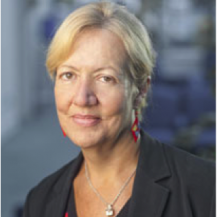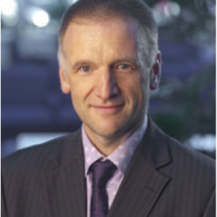Organisation
The senior office holders of the MSG during 2019 were follows:
The senior office

Dr Gary Yarwood
Chairman

Dr James Chandler
Lead Governance Partner

Mr Michael Blundell
Lead Finance Partner
Directorate Chairs

Dr Dean Patterson
Adult Medicine

Dr Jocelyn Briggs
Adult Medicine

Dr Hamish Duncan
Adult Medicine

Dr Graham Beck
Anaesthetics

Mr Sadeo Kairsingh
Surgical

Mr Frank Hopkins
Women & Child Health
Throughout 2019, the MSG had 49 consultants across four directorates.
The specialties covered are as follows:
Adult Medicine 12 Consultants
- Cardiology
- Gastroenterology
- Oncology
- General Physicians
- Diabetes/Endocrinology
- Geriatrics
- Nephrology
- Respiratory
Anaesthetics 10 Consultants
- Anaesthetics
- Intensive Care
- Chronic Pain
Surgery 12 Consultants
- General Surgery
- Breast Surgery
- Ear, Nose & Throat
- Ophthalmology
- Orthopaedics
- Urology
Women & Child Health 15 Consultants
- Obstetrics & Gynaecology
- Paediatrics
The income for the MSG comes primarily from the secondary healthcare contract (80%). The balance is from private earnings.
Revenue expenditure increased by 9% compared to the previous year. An analysis of expenditure is below:
Due to changes in accounting standards, the way that expenses relating to the rental of Alexandra House and Mill House are recognised in the accounts has changed. The 46% decrease in property and the 117% increase in equipment is largely due to the change of these standards but is not monetarily different.
The 47% increase in professional fees is primarily due to the increase in medical indemnity costs (MDDUS). There was an increase of 51% on this insurance premium.
GOVERNANCE
Complaints
In 2019, Dr Jim Chandler took over as Clinical Governance Lead for the MSG from Miss Carol Makin. As Clinical Governance Lead, Dr Chandler became a member of the Single Clinical Governance Group as stipulated in the Secondary Healthcare Contract. This Group is responsible for ensuring all issues of clinical governance including serious incidents, complaints, compliance of the Law and undertake a continuous review as to whether and if so, how, clinical governance can be improved.
The Single Clinical Governance Group receive quarterly reports which highlight the number of complaints, CALS cases and compliments received together with any learning or themes that need further discussion. The Single Clinical Governance Group reports to the Corporate Management Team which is made up of senior individuals within HSC and is the Single Clinical Governance Group’s link to the Committee.
As per 2018, all complaints for 2019 were recorded and logged on HSC’s database system. In 2018 the Customer Care Team were tasked in reducing the number of formal complaints by resolving patient’s concerns immediately and in 2019, 149 cases were recorded as CALS cases against 75 formal complaints.
Customer Advisory Liaison Service (CALS) Cases: complaints which can be addressed quickly and promptly without the need of going through the formal complaints process.
Incidents
A clinical incident is any unintended or unexpected event which caused or had the potential to cause harm to a patient. Reporting of clinical incidents is actively encouraged in order to learn from events, which fosters a safer environment for patients. It is important to note that these reports are not necessarily indicators of poor clinical practice.
A total of 514 clinical incidents were reported in 2019 (compared to 536 in 2018) which our consultants either witnessed or were involved in.
Data Protection
In 2019 various Data protection projects were undertaken; the main project involved restructuring and organising the amount of data that was being handled by our staff and ensuring that the data we hold is only accessible by authorised personnel. We are pleased to say that we are nearing completion of this project.
Data protection remains high on the agenda and further projects have been outlined for 2020.
The MSG’s Caldicott Guardian and Data Protection Officer attend the Caldicott Guardian meeting which is also attended by HSC, Primary Care and the Office of the Data Protection Authority. Each organisation is required to provide information on the number of incidents that have been reported.